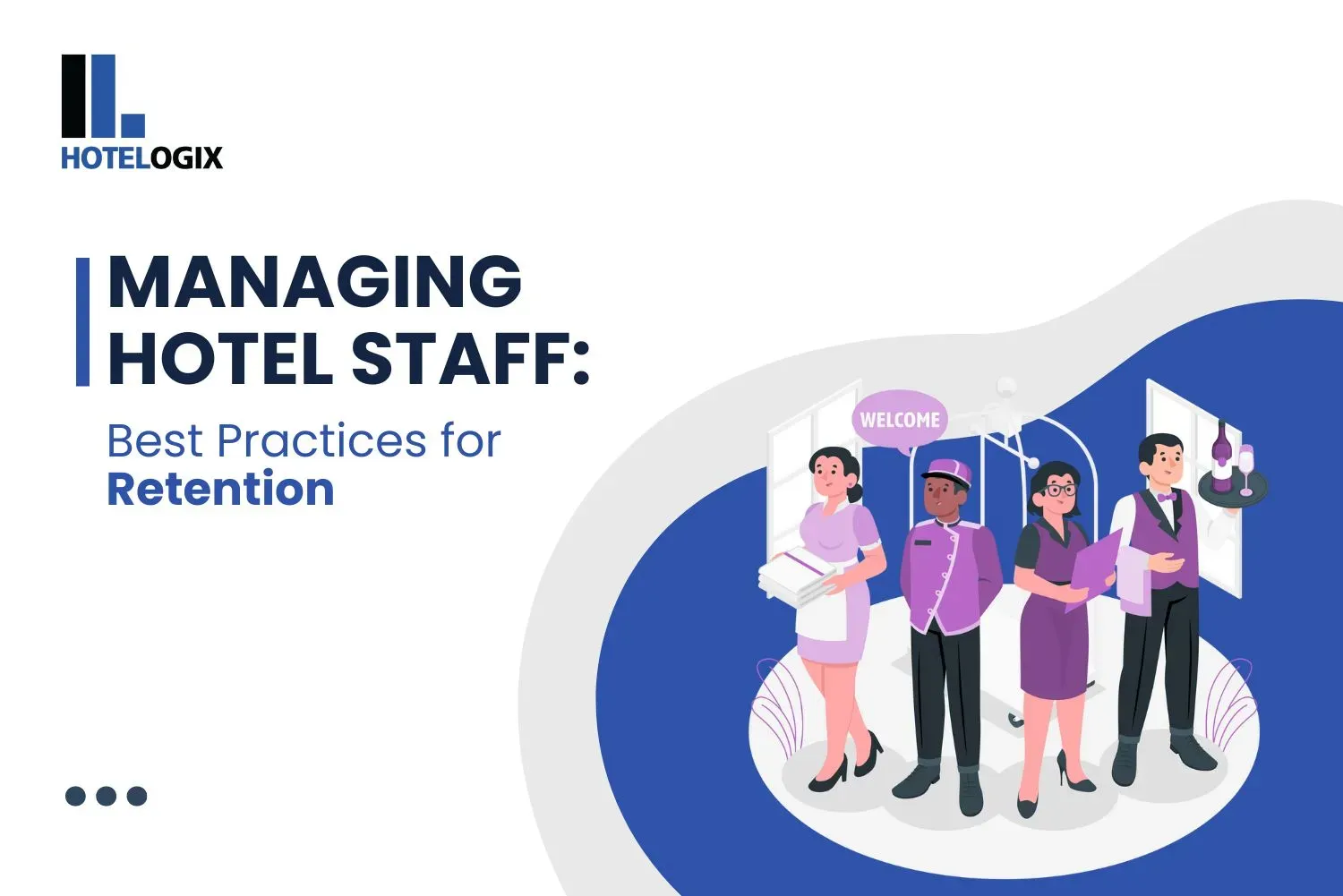In the fast-paced world of hospitality, the backbone of any successful hotel operation lies in its staff. From the front desk to housekeeping, from the kitchen to food and beverage service, each department plays a crucial role in ensuring guest satisfaction. However, the hotel industry faces a significant challenge: managing and retaining quality staff.
The Hospitality Staffing Crisis
The hotel industry is grappling with a perfect storm of staffing issues. Long working hours, especially during holidays, keep employees away from their families. This demanding schedule takes a toll on both their physical and mental well-being. To compound the problem, there’s a growing scarcity of trained resources in the market.
Recent data from the American Hotel & Lodging Association (AHLA) paints a stark picture:
- 97% of hotels report staffing shortages
- 49% classify their staffing shortage as severe
- Hotels are offering a 27% average wage increase to fill open positions
The result? A bitter concoction of high staff attrition rates that’s leaving a sour taste in the mouths of hotel managers worldwide.
This constant cycle of hiring and training is not just a headache—it’s a significant drain on resources. According to a study by the Center for American Progress, replacing a single employee can cost anywhere from 16% to 213% of their annual salary, depending on their position.
But it’s not just about the money. The time invested in training new staff, the potential drop in service quality during transition periods, and the impact on team morale all contribute to making staff turnover a critical issue that needs addressing.
Retaining Your Hotel’s Most Valuable Asset: Your Staff
As J. Willard Marriott, the founder of Marriott Corporation, wisely said, “Take care of your employees, and they will take care of your customers.”
This philosophy is at the heart of successful staff retention strategies. Let’s dive into five key areas that can make a significant difference in keeping your trained resources happy and loyal.
1. Paving the Way for Growth
Employees who see a clear path for advancement are more likely to stick around. A study by LinkedIn found that 94% of employees would stay at a company longer if it invested in their career development.
Action Steps:
- Create detailed career ladders for each department, utilizing the impact of AI to analyze skill gaps and future potential.
- Implement a mentorship program
- Offer cross-training opportunities to broaden skill sets
Case Study: The Ritz-Carlton Leadership Center has a renowned “Talent Plus” system that identifies employees’ natural talents and aligns them with roles where they can excel and grow. This approach has contributed to their impressive 80% employee satisfaction rate.
Read Also - Home-Grown Mid-Segment Hotel Brands have a Competitive Edge Against International Brands in India
2. Recognizing and Rewarding Excellence
Recognition goes a long way in boosting morale and fostering loyalty. According to a Gallup poll, employees who receive regular recognition are 5 times more likely to stay at their jobs.
Action Steps:
- Implement an “Employee of the Month” program
- Offer spot bonuses for exceptional service
- Create a peer-to-peer recognition system
Data Point: Hotels that have implemented robust recognition programs have seen up to a 31% reduction in voluntary turnover, as reported by the Society for Human Resource Management (SHRM).
3. Enhancing Benefits and Perks
While competitive salaries are important, unique benefits can set your hotel apart as an employer of choice. A survey by Glassdoor found that 80% of employees prefer additional benefits over a pay raise. Additionally, satisfied employees who feel valued are more likely to deliver exceptional guest experiences, indirectly contributing to boosting occupancy rates.
Action Steps:
- Offer flexible scheduling options
- Provide wellness programs (e.g., gym memberships, stress management workshops)
- Consider unique perks like occasional stays at partner hotels
Market Analysis: Hotels offering comprehensive benefits packages report 26% higher employee satisfaction rates and 22% lower turnover compared to those offering only basic benefits, according to a 2023 hospitality industry report.
4. Investing in Training and Development
Continuous learning opportunities not only improve service quality but also increase employee engagement. LinkedIn’s 2023 Workplace Learning Report found that 94% of employees would stay at a company longer if it invested in their learning and development.
Action Steps:
- Develop a structured onboarding program
- Offer regular skill enhancement workshops
- Provide opportunities for external certifications
Case Study: Hilton’s “Thrive@Hilton” program, which focuses on employee well-being and development, has contributed to their recognition as one of Fortune’s “100 Best Companies to Work For” for several consecutive years.
5. Listening to Your Team: The Power of Feedback
Regular feedback sessions can nip potential issues in the bud and make employees feel valued. A study by Qualtrics found that employees whose managers consistently acknowledge them for good work are 5 times more likely to stay at the company.
Action Steps:
- Conduct quarterly one-on-one check-ins
- Use anonymous suggestion boxes for honest feedback
- Act on feasible suggestions promptly
Data Point: Hotels that implemented regular feedback systems saw a 14.9% increase in employee engagement scores, according to a 2023 hospitality industry benchmark study.
Hiring and Onboarding: Building Your Dream Team
While focusing on retention is crucial, the reality is that some turnover is inevitable. The key is to make your hiring and onboarding processes as efficient and effective as possible.

1. Crafting Clear and Crisp SOPs
Standard Operating Procedures (SOPs) are the backbone of consistent service. Clear SOPs can significantly reduce training time and improve service quality.
Action Steps:
- Review and simplify existing SOPs
- Use visual aids and flowcharts for clarity
- Regularly update SOPs based on feedback and changing needs
Market Analysis: Hotels with well-documented and regularly updated SOPs report 23% faster onboarding times and 18% fewer customer complaints related to service inconsistencies.
2. Leveraging User-Friendly Technology
Action Steps:
- Invest in intuitive Hotelogix Property Management Systems (PMS).
- Use mobile apps for tasks like housekeeping management.
- Implement chatbots for internal FAQs.
Data Point: According to a 2023 hospitality technology report, hotels that invested in user-friendly, mobile-first technologies saw a 34% reduction in training time for new hires and a 28% increase in overall operational efficiency.
3. Implementing Certification Programs
Certification programs can standardize skills across your team and provide a sense of achievement for employees.
Action Steps:
- Develop in-house certification programs for each department
- Partner with industry bodies for recognized certifications
- Offer incentives for completing certifications
Case Study: Marriott’s “Global Discipline Certification” program has not only improved service standards but also increased employee retention rates by 17% among certified staff.
Read Also - Boosting Hotel Revenue with Communication Strategies
Bringing It All Together
Managing hotel staff effectively is a complex task, but it’s one that pays dividends in guest satisfaction, operational efficiency, and ultimately, profitability. By focusing on both retention and efficient hiring/onboarding, hotels can break free from the costly cycle of constant turnover.
Remember, your staff is not just a workforce—they’re the heart and soul of your hotel. Invest in their growth, recognize their efforts, provide them with the tools they need to succeed, and listen to their feedback. In return, you’ll build a team of passionate hospitality professionals who will go above and beyond to create memorable experiences for your guests.
In the words of Richard Branson, “Clients do not come first. Employees come first. If you take care of your employees, they will take care of the clients.”
In the hospitality industry, this couldn’t be more true. By mastering the art of staff management, you’re not just running a hotel—you’re crafting experiences, building careers, and setting the stage for long-term success in the ever-evolving world of hospitality.


